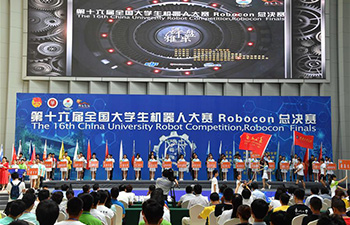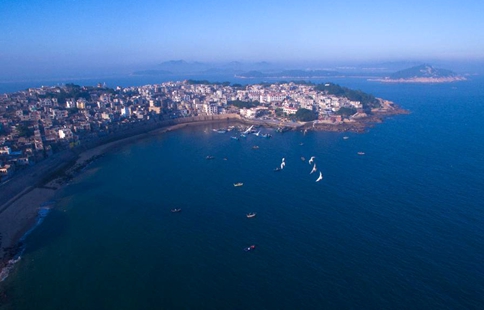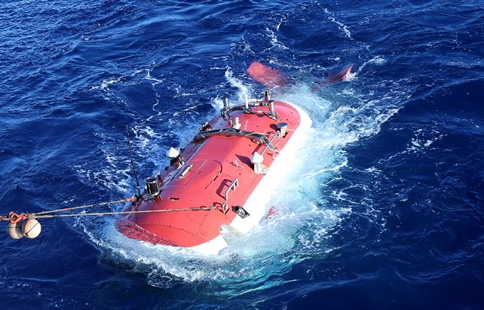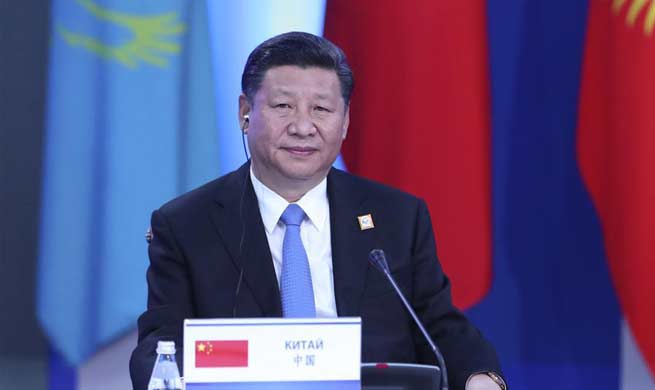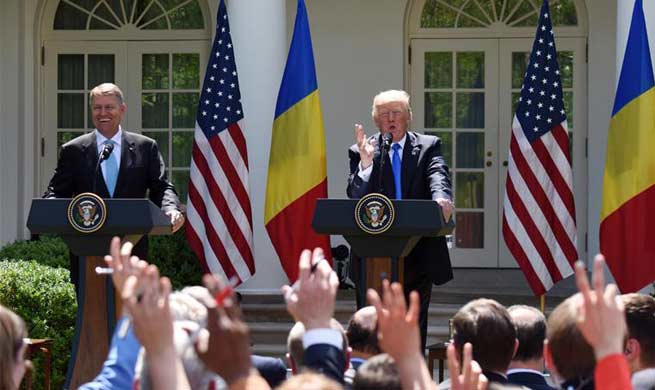by William M. Reilly
UNITED NATIONS, June 9 (Xinhua) -- The five-day UN Ocean Conference on Friday agreed on a call for action to "act decisively and urgently" to implement long-term and robust strategies to reverse the decline of the world's oceans, suffering pollution, acidification, over- and illegal-fishing and a general lack of high seas governance.
"Recognizing that the wellbeing of present and future generations is inextricably linked to the health and productivity of the ocean," the 193-countries taking part in the conclave agreed in the Call for Action. Furthermore, the world must "act decisively and urgently, convinced that our collective action will make a meaningful difference to our people, to our planet and to our prosperity."
Countries agreed to implement robust strategies to reduce the use of plastics and micro-plastics such as in toothpaste and cleansing aids, according to the outcome document. They also agreed to develop and implement effective adaptation and mitigation measures that contribute to ocean and coastal acidification, sea-level rise and increase in ocean temperatures, and to address other harmful impacts of climate change on the ocean.
The Call for Action also includes measures to protect coastal and blue carbon ecosystems, such as mangroves, tidal marshes, sea grass and coral reefs, and wider interconnected ecosystems, as well as enhancing sustainable fisheries management, including to restore fish stocks at least to levels that can produce maximum sustainable yield.
Countries also were called on to prohibit certain forms of fisheries subsidies which contribute to overcapacity and over-fishing, and eliminate subsidies that contribute to illegal, unreported and unregulated fishing.
The outcome document, "Our ocean, our future: Call for action" was adopted by consensus and the conference recommended it be endorsed by the UN General Assembly.
"The Ocean Conference has changed our relationship with the ocean," said Peter Thomson, of Fiji, president of the UN General Assembly. "Henceforth, none can say they were not aware of the harm humanity has done to the oceans' health. We are now working around the world to restore a relationship of balance and respect towards the ocean."
"The tide has turned on marine pollution," he said.
"This conference was held at a very critical time," said Deputy Prime Minister Isabella Lovin of Sweden, co-host of the conference along with Fiji. "The oceans have been very much in the periphery and now we finally for the first time put them at the center."
"This week has been the game changer that we wanted it to be for the oceans," she told reporters. "All the different challenges have been discussed here at the heart of the UN ... and we've broken down the silos and the fragmentation that for too long has been the curse of our ocean."
"It has been made visible that the ocean and the climate agendas are very, very closely linked," Lovin said. "The week has been characterized by determination, determination to turn the tide for the ocean to stop marine litter, to fight illegal fisheries, to reduce the impact of climate change and to bring back ocean resilience and ocean health."
Some 1,200 voluntary commitments have been registered by countries and the private sector and more commitments are expected. More than 5,000 delegates from the United Nations 193 member states attended. It was the first UN conference of its kind on the ocean.
The number of attendees was so great that visiting by tourists to the headquarters complex on Manhattan's East Side was suspended for the week.
Wu Hongbo, undersecretary-general for Economic and Social Affairs and Secretary-General of The Ocean Conference, said the meetings marked a major step forward for the implementation of the Sustainable Development Goals (SDGs).
"Participants from member states, NGOs, civil society, the private sector, the scientific community and academia engaged in wide-ranging discussion and shared state-of-the-art knowledge and latest information on marine science and challenges," he said.
He said it was hoped the many innovative solutions put forward would help achieve SDG 14, which seeks to conserve and sustainably use the oceans, seas and marine resources for sustainable development, and through its inter-linkages the other SDGs and targets.
The Call for Action calls on UN Secretary-General Antonio Guterres to enhance coordination and coherence throughout the UN system on ocean issues.
"So we look to his leadership to help drive the SDG 14 agenda forward and to the UN system to assist in maintaining the engagement at the country and regional level," said Lovin at the closing session. "The knowledge we now have on how close to collapse the oceans are must produce this will."
"As has been said here this week, together we are all the crew on the spaceship Earth or, if you will, we are all the islanders on the island Earth in the black empty sea of space," she said. "It's our only home. We've traveled a long way. It's taken a billion years to get where we are now. On our journey in space, the ocean is what has kept us alive. Let's make sure not to fail it. Let's now promise to keep this beautiful blue planet alive."
Portugal and Kenya were named as co-hosts for the 2020 conference.




